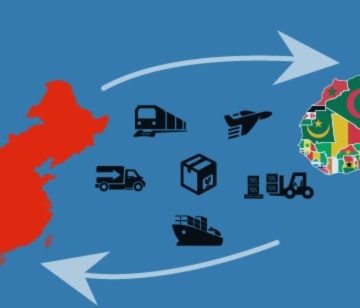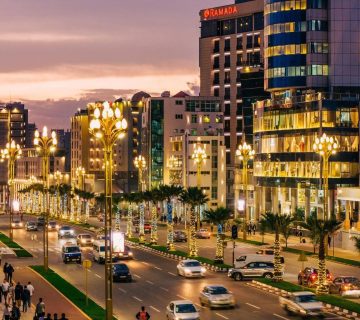Kenya’s use of another incidental proceeding (need to put a new defence team together) to change the course of proceedings (oral hearings) of the Somalia v Kenya case that had been scheduled to start this week at the International Court of Justice (ICJ) has sent two conflicting signals. Kenya’s move speaks of her willingness to exhaust every legal provision in preparation for the oral hearings that will now start on November 4, 2019, but also comes off as a delaying tactic that casts a shadow of doubt on Kenya’s preparedness for the impending ICJ process. Kenya should work at presenting a solid case at the Hague-based institution without needlessly antagonizing the Court, or Somalia.
Kenya’s claim of territorial jurisdiction over the maritime area on the continental shelf beyond 200 nautical miles in the Indian Ocean overlaps with that of Somalia. Kenya’s claim to the maritime territory is based on the parallel of latitude (straight line) principle of boundary delimitation that renders an eastward-running border, south of Kiunga. Somalia’s claim is hinged on the equidistance principle that renders a south-eastward-running border. Unable to determine the location and the complete course of the only maritime boundary that the two states share, Somalia sought ICJ’s intervention, on August 28, 2014. ICJ then scheduled the oral proceedings for September 9 to 13, 2019. In the interim, the Court asked the disputants to file and exchange their written pleadings with each other in accordance with the Court’s procedures and schedules.
On September 6, 2019, it emerged that Kenya needs more time to hire a new defence team. Three days earlier, Kenya, through Attorney General (AG) Paul Kihara, requested the Court to postpone oral hearings that had been set for a week in September 2019. The AG said Kenya would not appear before the Court this week, because of “exceptional circumstances.” Somalia expressed her views regarding this surprising new development to ICJ, who considered the same, and decided to accommodate this incidental proceeding. Kenya has thus demonstrated that it can flex some of its legal muscles, giving Kenya the much needed confidence boost ahead of the hearings. However, it also seems that ICJ could be acting in its own interests here.
The Court may have accepted Kenya’s request to forestall a future scenario in which the lack of a defence team could be used by Kenya – the respondent state in this case – as a reason for not appearing before it once the oral proceedings begin. It should be noted that court proceedings, including those of ICJ, can take their course in the absence of a party to a dispute. However, such a move often delays the legal process, or calls to question the legitimacy of pronouncements of the court in such circumstances. A court of ICJ’s standing would like to distance itself from such eventualities. Secondly, ICJ’s decision could also be motivated by the need of the Court, which sits at the Peace Palace, to safeguard its pacifist reputation. Kenya is a reluctant respondent state that prefers the political negotiations route as opposed to the legal one that Somalia opted for. Somalia believes that ICJ can deliver a fair ruling, which is why Somalia sued Kenya in 2014. Somalia also reiterated its confidence in the Court about a fortnight ago after rejecting the Commission of the African Union invitations to attend a briefing on the dispute. ICJ is keen to present itself as a fair, neutral, peace-seeking adjudicator.
This is not the first time Kenya has raised an incidental proceeding with ICJ though. In September 2016, Kenya made preliminary objections when she challenged the admissibility of Somalia’s case, contending that ICJ has no jurisdiction over the matter. Five months later, ICJ, whose role is to settle legal disputes submitted to it by UN member states, dismissed Kenya’s objections. Five years after Somalia filed the Kenya-Somalia case with ICJ, Kenya realizes she cannot use the Court’s jurisdiction card again to explain failure to appear before the Court. AG Kihara has had at least 18 months to prepare for an eventuality such as that of Kenya presenting its oral proceedings before the Court. It is not yet clear why the country’s legal team has not yet been established, or what difference the new team will make on the case. The expectation is that the team that will be delivered in the extra four weeks that ICJ has now provided will be up to the task of ably representing Kenya in this case.
The Court will pronounce itself on the matter after the oral hearings in November 2019. That decision, which cannot be appealed, will be final, and binding. There is little likelihood that the merits of this case will be threatened in the next four weeks, necessitating Somalia to request ICJ to extend to provisional measures to Somalia. Or that Kenya will – in the course of the month – find an ally that will be affected by the Court’s decision in some way, to intervene in the case. Any seemingly unnecessary delays by either party in the next four weeks could win the delayed party more sympathy and support in the region, and around the world, compromising the position of the delaying party. Kenya should shift its focus from initiating another incidental proceeding to exploring the odd chance of finding that ally, and on preparing its defence solidly. Kenya’s oral proceedings should leave no doubt on the Court’s mind that a negotiated outcome will be best for the peace and stability of the Horn of Africa region.
Roselyne Omondi is the Associate Director, Research, at the HORN Institute.
Photo: Statue of Lady Justice at the International Court of Justice, the Hague, Netherlands (Photo Credit: R. Classen)



